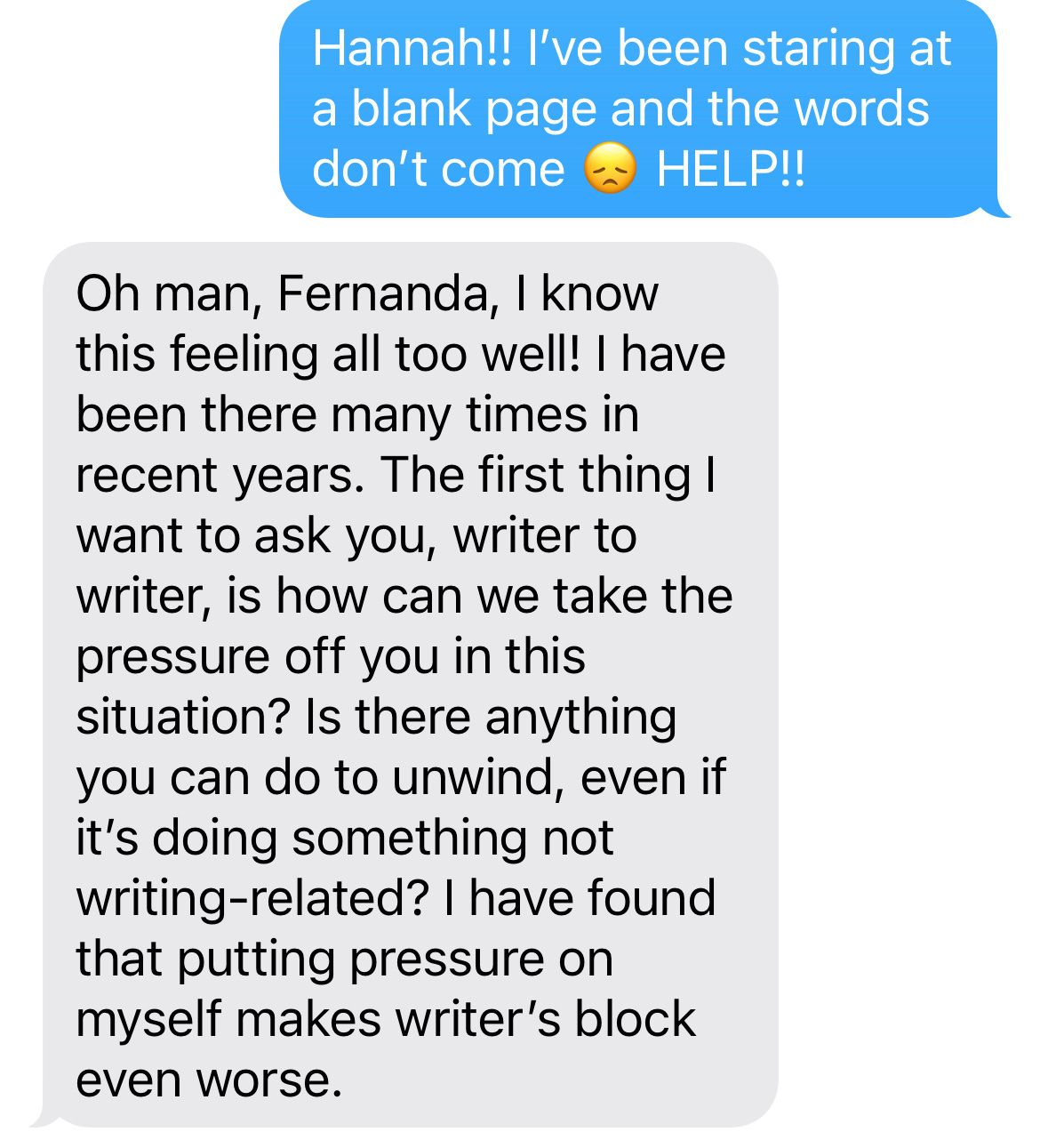Hello, and welcome to the inaugural edition of Texting With a Writer, where I share with you text messages I’ve exchanged with fellow writers about the challenges we face. First up is Hannah Bae and the age-old question anyone who is writing anything for sure has faced: What can we do when words don’t come?
I met Hannah in 2019, when she and I were participants in the Poynter Institute’s Power of Diverse Voices, a selective seminar for journalists of color looking to discover and develop their voice and identity in their writing. Hannah is a freelance journalist and nonfiction writer whose work has focused on stories about Korean-American culture and identity. Like me, Hannah is at work on a memoir; hers is centered around family estrangement and mental illness. She is also a dear friend and part of the tight support group I have around me. We’re there for each other, in writing and in life.
Let me know in the comments what you thought, what other tips and strategies you can contribute, and what topics you’d like me and another writer to talk about. Here is my conversation with Hannah. Enjoy!















I am laughing out loud. I just, for the first time, read your short entry "Quitting is an Action."
Yup.
Fernanda: I offer the following knowing that we all have different styles of thinking and writing. Just because the following has saved me in the midst of a number of writing projects, doesn't mean it would work for everybody.
I had to learn how to aggressively, firmly and purposely quit at moments when no amount of pushing through the pain was leading to ideas or insights.
This was much more than simply being kind to myself. I'm a big fan of being kind to myself, but I slowly learned another benefit of purposeful quitting. Again and again, in the hour or two after deciding not to write, even trying to force myself NOT to think, the ideas and words and phrases came.
At first, as your standard neurotic NY college professor, I felt silly about playing these mind games with myself. I wondered whether I was simply trying to put a respectable and strategic veneer on the plain fact that I wanted to give up struggling. (Talk about self-flagellation!) But it simply worked too many times to stop.
I remember once having four ideas in my head that I somehow knew were pieces of a puzzle that somehow fit together. But I was stuck on how they fit together. I immediately realized it was a time to defiantly quit, to deliver a full-throated "F---- You" to the computer screen. I walked to Prospect Park, looked at a tree, and noticed one big thick branch that was hosting a group of smaller branches. And I realized that my four ideas were less a puzzle than four branches emerging from a big branch, a more fundamental idea.
I also learned to accept that I was simply not a linear thinker, that I couldn't control when ideas would come. Focusing on one project, I would occasionally find myself flooded with words about a part of a manuscript on which I wasn't working. Or something I had never even thought of before. It didn't take me long to learn that no flood of words and thoughts should go ever unwritten at, or close to, the very moment they show up.
Eventually I saw the more fundamental insight revealed by all my games. I had to stop imagining that I was a linear writer, even stop imagining that there was such thing as the mythical organized, linear writer I couldn't stop admiring.
When I stopped worrying whether I was focused enough; when I realized that ideas had minds of their own (sounds silly, I know) and might take their own sweet time, I was at peace.
And they came.
Steve